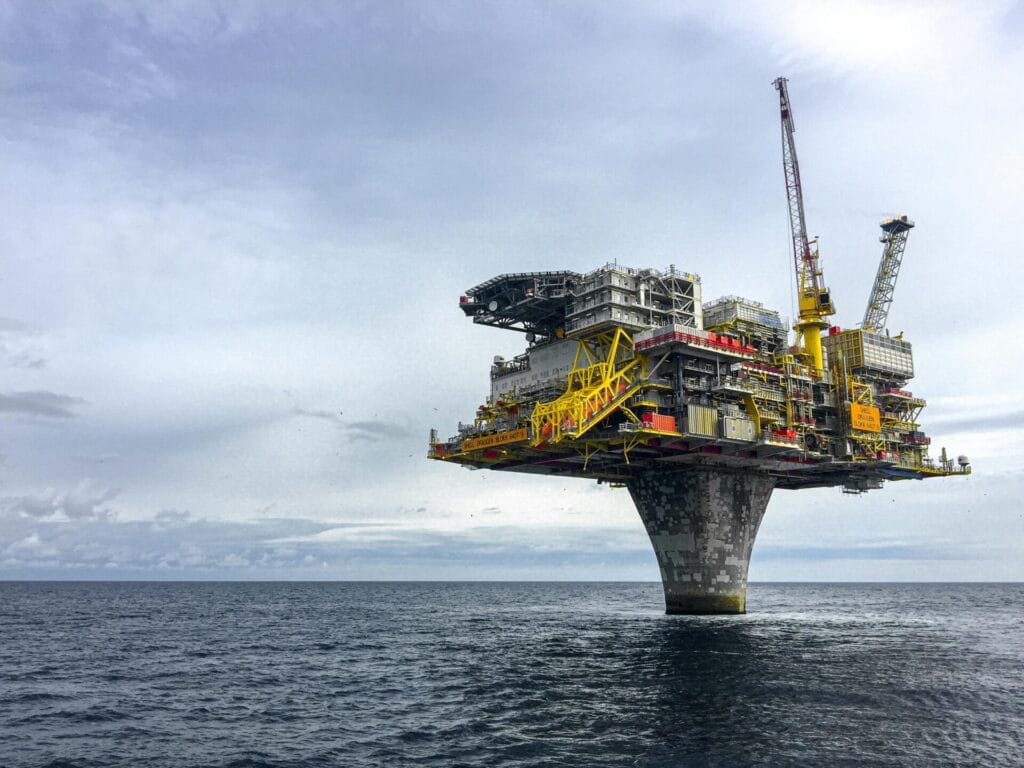Corrosion is a natural process that deteriorates materials—especially metals—through chemical or electrochemical reactions with their environment. In offshore, marine, and industrial applications, corrosion can lead to costly damage, equipment failure, and even safety risks. That’s where corrosion control comes in.
At Kent Offshore, we specialise in providing tailored corrosion control solutions to protect assets, extend equipment lifespan, and ensure safe operations across challenging environments. In this guide, we explain what corrosion control is, why it matters, and the main methods used to manage it.
Understanding Corrosion
Corrosion occurs when metal reacts with elements such as oxygen, water, or salts, forming compounds like rust or other oxides. This reaction is especially aggressive in offshore and marine environments, where high humidity, saltwater, and changing temperatures accelerate the corrosion process.
Common types of corrosion include:
- Uniform corrosion – affects large surfaces evenly.
- Pitting corrosion – localised damage creating small holes or pits.
- Crevice corrosion – occurs in confined spaces with limited oxygen.
- Galvanic corrosion – caused by contact between dissimilar metals in an electrolyte.
- Stress corrosion cracking – results from combined stress and corrosive conditions.
What is Corrosion Control?
Corrosion control refers to the strategies and techniques used to prevent or minimise corrosion, thereby protecting metal structures and components. These methods not only reduce maintenance costs but also improve safety, reliability, and regulatory compliance.
Why Corrosion Control Matters
For offshore platforms, pipelines, wind turbines, marine vessels, and infrastructure, corrosion is a significant threat. Without proper control, it can lead to:
- Equipment failure and unplanned downtime
- Increased maintenance and repair costs
- Environmental hazards due to leaks or structural failure
- Compromised safety for personnel
- Shortened asset lifespan
Investing in corrosion control means investing in long-term operational efficiency and safety.
Common Corrosion Control Methods
At Kent Offshore, we utilise industry-proven corrosion control techniques suited to the toughest conditions. The most common methods include:
1. Protective Coatings
Applying paints, epoxies, or powder coatings forms a physical barrier between the metal and its environment. These coatings prevent moisture, oxygen, and salts from reaching the surface.
2. Cathodic Protection
This electrochemical method involves making the metal structure the cathode of an electrochemical cell. There are two main types:
- Sacrificial anode systems – use more reactive metals (like zinc or aluminum) to corrode instead of the protected metal.
- Impressed current systems – use an external power source and inert anodes to provide corrosion protection.
3. Corrosion Inhibitors
These are chemicals added to a fluid (like cooling water or fuel) to reduce its corrosiveness. They form a protective film on the metal’s surface or alter the chemical composition of the environment.
4. Design and Material Selection
Using corrosion-resistant materials (such as stainless steel or composite materials) and designing structures to minimise water retention or crevices can prevent corrosion from the start.
5. Regular Inspections and Monitoring
Early detection is key to effective corrosion management. Kent Offshore provides inspection services and monitoring technologies to track corrosion rates and spot issues before they escalate.
Kent Offshore’s Approach to Corrosion Control
We offer comprehensive corrosion control services tailored to your specific industry and environmental challenges. Our process includes:
- Site and material assessments
- Customised corrosion mitigation plans
- Installation of protective systems
- Ongoing monitoring and maintenance
- Compliance with international standards (e.g., NACE, ISO, DNV)
Whether you operate in oil & gas, renewables, marine, or industrial sectors, our experts deliver solutions that protect your critical infrastructure.
Conclusion
Corrosion control is not just a maintenance task—it’s a strategic priority for any business relying on metal assets in aggressive environments. With proper control measures, companies can reduce risk, lower operational costs, and prolong the life of their infrastructure.
Kent Offshore is your trusted partner in corrosion protection. Contact us today to learn more about how we can safeguard your assets and optimise your operations.


